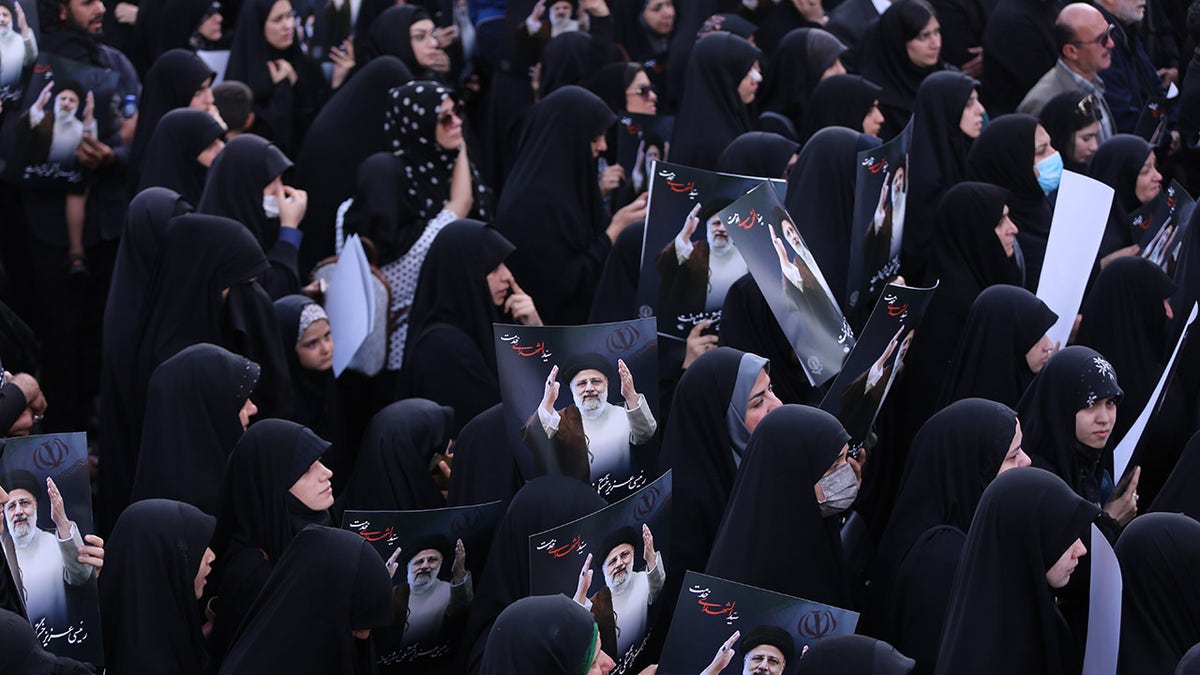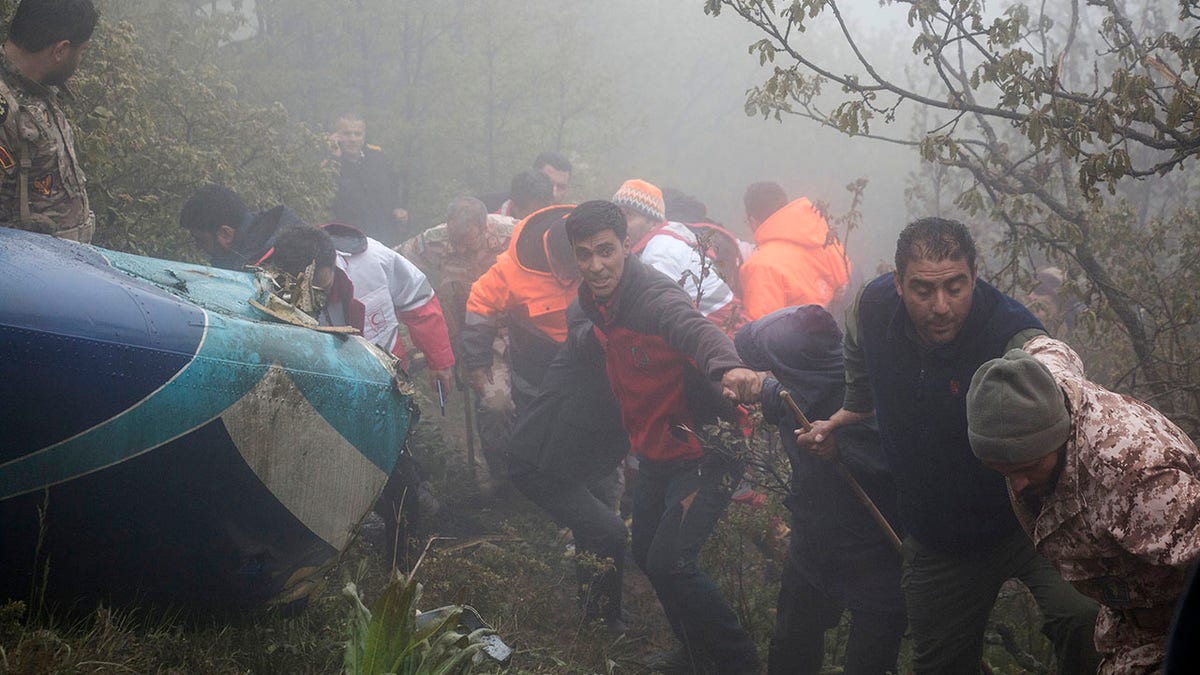Biden administration ripped for offering condolences over death of Iranian president
Search and rescue expert Armen Kurdian and 'The Foreign Desk' editor-in-chief Lisa Daftari joined 'Fox News @ Night' to discuss the backlash and Biden's condemnation of the ICC's arrest warrants.
The United States ultimately denied Iran’s rare request for American assistance following the deadly helicopter crash that killed Iranian President Ebrahim Raisi and Foreign Minister Hossein Amirabdollahian.
At a press conference on Monday, State Department spokesman Matthew Miller said the U.S. was "asked for assistance by the Iranian Government."
"We did make clear to them that we would offer assistance, as we would do in response to any request by a foreign government in this sort of situation," he told reporters. "And ultimately, we were not able to provide that assistance."
Pressed for more information about Tehran’s request, Miller declined to get into details. "We said that we would be willing to assist. It’s something that we would do with respect to any government in this situation. Ultimately, largely for logistical reasons, we weren’t able to provide that assistance," he reiterated.

People hold up posters of Iranian President Ebrahim Raisi during a mourning ceremony at Vali-e-Asr square in downtown Tehran, Iran, Monday, May 20, 2024. (AP Photo/Vahid Salemi)
The U.S. extended official condolences for the death of Iran’s president and foreign minister over the weekend and also participated in a moment of silence for Raisi at the United Nations Security Council.
Defending the move Monday, Miller said, "It is a step that the United States takes, recognizing that people have families, and in no way – in no way at all undermining our fundamental view of the Iranian regime and its crimes against its own people and our support for the Iranian people."
He described Raisi as "a brutal participant in the repression of the Iranian people for nearly four decades" who was "involved in numerous horrific human rights abuses, including playing a key role in the extrajudicial killing of thousands of political prisoners in 1988."
"Some of the worst human rights abuses occurred during his tenure as president, especially the human rights abuses against the women and girls of Iran," Miller said. "That said, we regret any loss of life. We don’t want to see anyone die in a helicopter crash. But that doesn’t change the reality of his record both as a judge and as the president of Iran and the fact that he has blood on his hands."

People gather at Valiasr Square to mourn the death of President Ebrahim Raisi, Foreign Minister Hussein Amir Abdollahian and other Iranian officials in a helicopter crash during a ceremony in Tehran on May 20, 2024. (Fatemeh Bahrami/Anadolu via Getty Images)
"Most importantly, our fundamental approach to Iran has not changed and will not change," Miller continued. "We will continue to support the people of Iran, to defend their human rights, their aspirations to an open, free society and democratic participation. And we will continue to confront the Iranian regime’s support for terrorism, its proliferation of dangerous weapons, and its advancement of nuclear – its nuclear program in ways that have no credible civilian purpose."
Iran considers the United States and Israel its main adversaries.

A rescue team works at the scene of a crash of a helicopter carrying Iranian President Ebrahim Raisi in northwestern Iran on Monday, (Azin Haghighi, Moj News Agency via AP)
U.S. Defense Secretary Lloyd Austin addressed concern that Tehran would blame the U.S. or Israel for the crash.
"The United States had no part to play in that crash," Austin said at a separate press conference. "That's a fact, plain and simple."
CLICK HERE TO FOR THE FOX NEWS APP
"I won't speculate as to what they will blame," he added. "They have to conduct an investigation to see what the cause of the crash was. It could be a number of things – mechanical failure, pilot error, you name it."















































